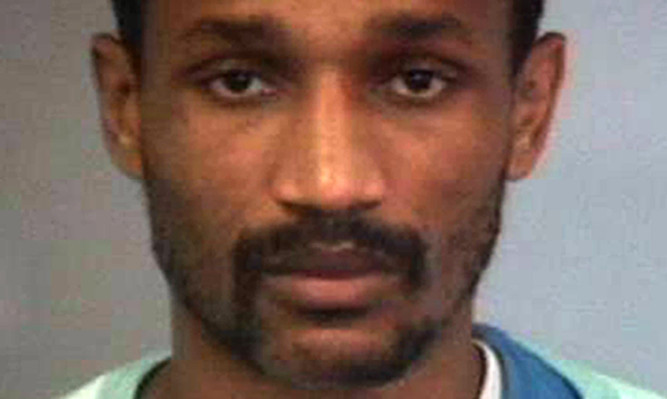A drug dealer was convicted of supplying a gun to Mark Duggan, whose fatal shooting by police just minutes later sparked the 2011 summer riots.
Kevin Hutchinson-Foster was found guilty at the Old Bailey of giving Mr Duggan the gun just 15 minutes before he was shot dead on August 4, 2011.
The 29-year-old’s death in Ferry Lane, Tottenham, north London, sparked riots that swept across London and other English towns and cities.
Hutchinson-Foster, 30, who is already in prison for drugs offences and was on licence at the time he gave Mr Duggan the gun, had already pleaded guilty to using the same gun to threaten people in a barber’s shop just six days before, as well as using it to “pistol whip” a barber.
He is seen on CCTV threatening Peter Osadebay then returning and beating him with the gun until he nearly lost consciousness.
Hutchinson-Foster had pleaded guilty to possessing a firearm with intent to cause fear of violence and assault occasioning actual bodily harm.
He denied selling or transferring a prohibited firearm to Mr Duggan between July 28 and August 5, 2011, and a jury failed to reach a verdict in an original trial, prompting a retrial at the Old Bailey which led to his conviction.
He will be sentenced for all three charges on February 26.
The court heard that Mr Duggan, who was under police surveillance that day and the day before, had gone in the minicab to Leyton, east London, where he collected the the BBM Bruni Model 92 handgun in a shoebox from Hutchinson-Foster, before continuing to Tottenham.
The cab was pulled over by armed police in four unmarked cars in a “hard stop”, and as Mr Duggan got out clutching the gun, he was shot by CO19 officers.
After his death, there was speculation that he may have been on his way to carry out a revenge attack over the murder of his cousin Kelvin Easton, 23, who was killed in a knife attack at an east London nightclub in March 2011.
But a source today said that investigators looking into Mr Duggan’s death have found nothing to suggest that was true.
Warren Allen, 30, of Holloway, north London, was cleared of Mr Easton’s murder at the Old Bailey in September.
In the so-far only public accounts of what happened, police officers told Hutchinson-Foster’s trial about how they opened fire on Mr Duggan.
Known only as V53, the man who shot him said he was sure Mr Duggan was holding a handgun, while other officers also claimed Mr Duggan was hiding something in his hand and then raised what appeared to be a gun as he got out of the cab.
The jury were told it was not their task to decide the “rights and wrongs” of Mr Duggan’s shooting, which will be examined at the inquest into his death in September.
Hutchinson-Foster admitted using the gun to beat Mr Osadebay at a salon in Dalston, east London, on July 29, 2011, which he said explained why his DNA was found on it when it was retrieved from Ferry Lane on August 4.
He said he had collected the firearm on July 29, and returned it the same day so could not have been the person who passed it to Mr Duggan.
The gun was found five metres from Mr Duggan’s body on a grass verge behind railings. The shoebox, found in the minicab, had both his and Hutchinson-Foster’s fingerprints on it, while mobile phone evidence showed they were in contact with each other in the run up to the shooting.
The court heard today that Hutchinson-Foster is currently in prison serving a 54-month sentence, due to finish in December, for drugs offences.
He had been released after a previous sentence in April 2011, and was on licence when he passed the gun to Mr Duggan and beat Mr Osadebay.
After today’s verdict chief superintendent Dean Haydon, from Scotland Yard’s Trident Gang Crime Command said: “There is an ongoing IPCC investigation into the death of Mark Duggan and the circumstances of his death will be a matter for the coroner at a later date.”
He said there had been a 20% reduction in gun crime over the past four years, adding: “The Kevin Hutchinson-Foster trial has primarily been about the supply of an illegal firearm and I welcome the verdict of the jury in this case today.”
Alison Saunders, CPS London chief crown prosecutor, said: “This conviction sends a strong message that gun crime and violence will not be tolerated in London.”
